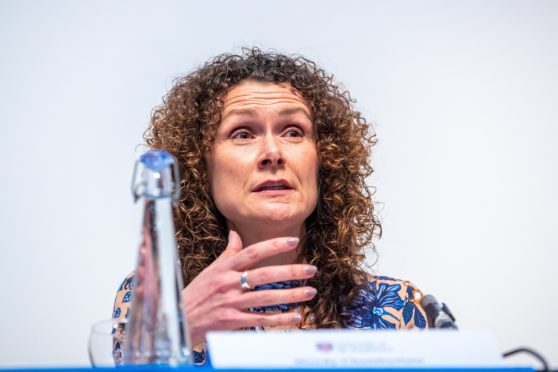As Scotland and the UK continues to navigate the Covid-19 pandemic, Prime Minister Boris Johnson announced the Department for International Development (DFID) would be merged with the Foreign and Commonwealth Office.
After my election in December, I took on the role of Lib Dem parliamentary spokesperson for International Development and, over the past few months, have met many people and organisations across the sector.
As the pandemic developed, many spoke of their concern that many of the countries in which they operate have poor sanitation and limited options for social distancing. In my discussions with them since, not one has told me that they had been consulted on the merger in advance.
DFID is seen as a world leader in terms of delivering aid and assistance to those most in need throughout the world.
Where DFID goes, other world government aid follows. Recently the GAVI Vaccine Alliance Summit, hosted by the UK, saw a number of nations and foundations commit $8.8 billion of funding to immunise 300 million children and support the global fight against Covid-19.
Response needs to be global
We need to ensure that all countries can access Covid-19 technologies. Pharmaceutical companies themselves are now collaborating on this issue, but we need the UK Government to make sure poorer countries don’t lose out on vaccines and other medicines.
The recent breakthrough in relation to the drug dexamethasone being used for Covid patients on ventilators is obviously great news, but many countries have only a small number of ventilators, and no reliable oxygen supplies.
The challenges around the Covid pandemic lead to an obvious question: why is the government pursuing this merger now?
The Foreign Affairs Integrated review, due to look at all related government departments, had been postponed, so clearly this was a decision already made in advance.
It was reported that DFID staff in East Kilbride found out about the merger via reports on social media. DFID’s role supports jobs in North East Fife, too.
That’s why I tabled and was granted an urgent question in the House of Commons.
I asked the Foreign Secretary to outline plans for the merger, the future of the International Development Committee and whether the Independent Commission for Aid Impact (ICAI), who have responsibility for ensuring UK aid spending is well spent, will be maintained.
Currently, DFID scores well on the transparency of our aid spending and the Foreign Office scores poorly.
With talk of Overseas Development Aid (ODA) money being diverted to a new royal yacht, it’s critical that these questions are answered.
Secretary of state needs to set out position
I’ve now also written to the DFID Secretary of State Anne Marie Trevelyan, asking her to outline her objectives until she steps down in September and provide further details on the merger. She’s yet to make any public statement on it.
I’m proud of the fact that it was the Lib Dems who ensured the commitment to spend 0.7% of the UK’s gross national income on international aid.
It’s part of what I believe global Britain is all about. As lockdown restrictions are eased across Fife and Scotland, we need to be vigilant regarding local outbreaks and a potential second wave.
As we look outwards to other parts of the world, it’s clear that we are only as Covid-secure as the worst-affected country.
It’s therefore even more important the UK continues to play its part as a leading contributor to international aid efforts.
